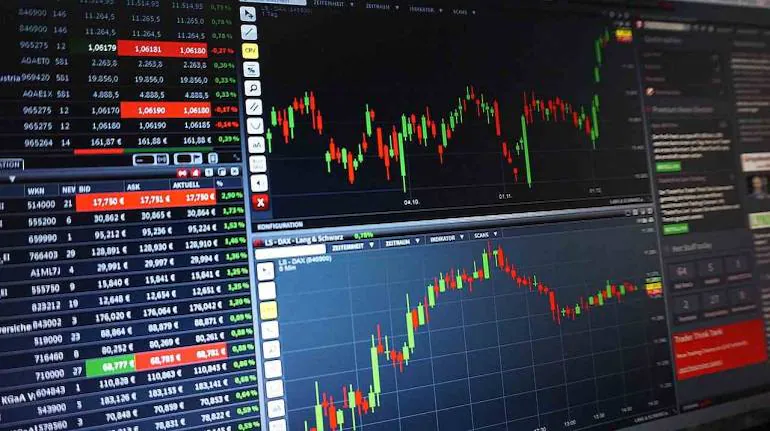The foreign exchange (Forex) market offers vast opportunities for traders worldwide. However, success in this highly volatile environment depends on more than luck or intuition—it requires a well-thought-out trading strategy. Selecting the right strategy can be the difference between consistent profits and significant losses. In this article, we will explore the essential factors to consider when choosing a Forex trading strategy, helping you tailor your approach to fit your goals, resources, and preferences.
Understanding Your Trading Goals
The first step in selecting a Forex trading strategy is defining your trading goals. Every trader enters the market with unique aspirations, whether to generate short-term profits, build long-term wealth, or supplement existing income. The choice between short-term strategies like scalping and day trading versus long-term methods like swing or position trading often hinges on these goals.
Risk tolerance is another crucial aspect to consider. Some strategies involve frequent trades and high volatility, while others prioritise steadier returns with lower risk. Your willingness to endure losses, as well as your financial capacity to absorb them, should guide your decision. Additionally, it’s essential to clarify how frequently you intend to trade. Active traders might opt for strategies that capitalise on intraday price movements, while others with less time may focus on approaches that allow for less frequent monitoring. Click to read more.
Time Commitment and Trading Style
Forex trading requires varying levels of time investment, depending on the chosen strategy. Scalping, for instance, demands constant attention, as traders make rapid, short-term trades within minutes or seconds. Day trading also requires a significant time commitment, as it involves executing and closing multiple trades during a single session.
Conversely, swing trading and position trading allow for more flexibility. Swing traders typically hold positions for days or weeks, while position traders maintain trades for months or even years, basing their decisions on long-term market trends. Your lifestyle, schedule, and ability to focus on the market should influence your choice of trading style.
Risk Management Considerations
Effective risk management is a cornerstone of successful Forex trading. Your chosen strategy must align with your risk appetite. High-risk strategies may yield larger profits but come with the potential for steep losses. Conversely, conservative approaches often yield more modest returns but offer greater stability.
Setting clear stop-loss and take-profit levels is critical in mitigating risk. These tools allow you to define your maximum acceptable loss and secure profits automatically, protecting your capital. Position sizing, or the amount you invest per trade, should also reflect your risk tolerance. Using leverage, while potentially amplifying gains, must be approached cautiously as it can also magnify losses.
Market Analysis Methods
Understanding the tools and methods of market analysis is vital when choosing a trading strategy. Technical analysis focuses on chart patterns, indicators, and historical price data to predict future movements. Tools such as moving averages, the Relative Strength Index (RSI), and the Moving Average Convergence Divergence (MACD) are commonly used to identify trends and potential entry points.
Fundamental analysis, on the other hand, emphasises the impact of economic indicators, geopolitical events, and central bank policies on currency values. Traders using this approach track events like interest rate changes, GDP growth, and inflation reports. Lastly, sentiment analysis evaluates the overall market mood, often using news feeds or social media trends to gauge the collective psychology of market participants.
Trading Psychology and Emotional Control
Emotional discipline plays a critical role in the success of any Forex trading strategy. Fear, greed, and impatience are common pitfalls that can lead to impulsive decisions and significant losses. Your strategy should account for your emotional tendencies.
For instance, if you struggle with anxiety during high-pressure situations, a less aggressive approach like swing or position trading may suit you better. Conversely, traders who thrive on fast-paced decision-making might prefer scalping or day trading. Maintaining consistency in your strategy, regardless of market fluctuations, is key to avoiding emotional trading errors.
Technical Infrastructure and Tools
The tools you use can greatly influence the effectiveness of your Forex trading strategy. A reliable trading platform that offers fast execution, advanced charting tools, and robust security features is essential. When choosing a broker, ensure they support your preferred strategy, whether it involves high-frequency trading or long-term investing.
Automation can also be a game-changer. Expert Advisors (EAs) and algorithmic trading bots allow traders to implement their strategies with minimal manual intervention. Mobile trading apps and real-time alerts further enhance your ability to stay connected to the market, ensuring you don’t miss critical opportunities.
Adapting to Market Conditions
The Forex market is dynamic, and no single strategy works in all conditions. Flexibility is key to adapting your approach as trends, volatility, and economic climates change. Strategies that excel in a trending market might struggle during periods of consolidation or sideways movement.
Staying informed about global events and economic data releases allows you to adjust your strategy proactively. Whether by switching to a more suitable approach or tweaking your existing methods, adaptability ensures you remain prepared for changing market conditions.
Conclusion
Choosing the right Forex trading strategy requires careful consideration of your goals, risk tolerance, and resources. By aligning your strategy with your objectives, emotional strengths, and technical expertise, you can create a tailored approach that increases your chances of success. Remember, Forex trading is a journey that requires continuous learning, adaptability, and discipline. With the right strategy in place, you can navigate the complexities of the Forex market and work toward achieving your financial goals.








